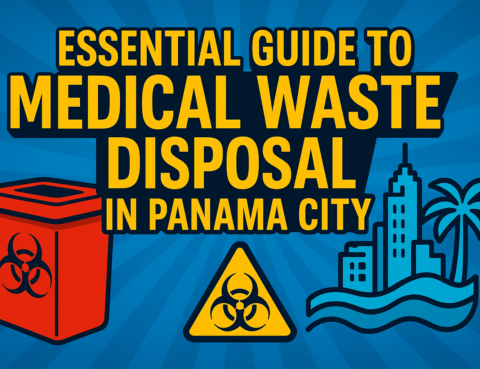
Healthcare facilities in Panama City need good medical waste disposal services to follow Florida rules. Proper medical waste disposal Panama City keeps patients safe, protects healthcare workers, and stops environmental problems. This guide tells healthcare providers what they need to know about medical waste management in Panama City. We’ll look at rules, best practices, and…
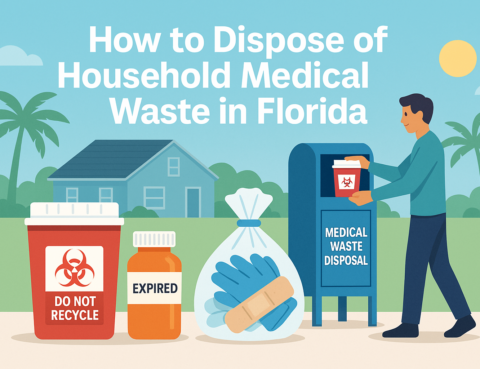
Properly handling medical waste at home is crucial for keeping our communities safe and clean. Whether it’s used needles, expired medications, or other medical supplies, knowing how to dispose of household medical waste in Florida is essential. This guide will walk you through the right steps to take, provide helpful tips, and answer common questions…
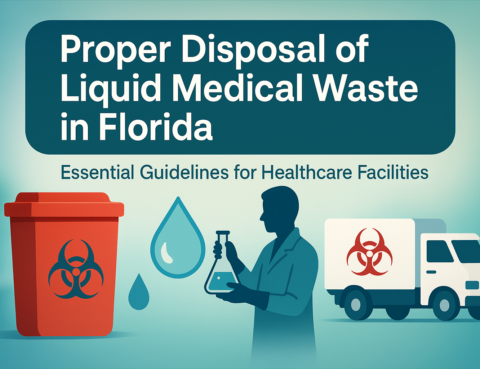
Proper disposal of liquid medical waste is not only essential for public health but also a legal requirement in Florida. Whether you run a hospital, clinic, or laboratory, knowing the right procedures helps prevent contamination and ensures environmental safety. In this article, we’ll break down how to dispose of liquid medical waste in Florida, step…

Proper medical waste disposal is crucial for safety in healthcare settings. Knowing how to dispose syringes and needles in hospital not only protects staff and patients, but it also prevents environmental harm. Hospitals follow strict rules when handling sharps to avoid needle-stick injuries and the spread of infections. This article explains everything you need to…
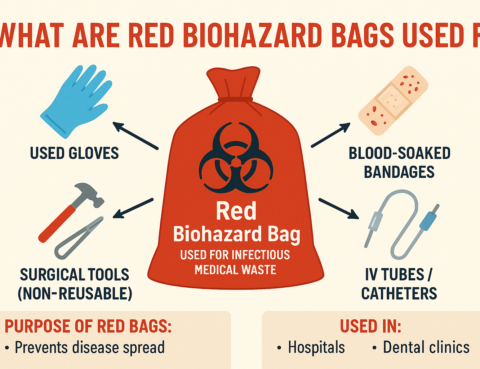
If you’ve ever visited a hospital or clinic, you may have seen bright red bags in certain areas. These red bags are not just regular trash bags. They serve a very important role in keeping people safe. But what are red biohazard bags used for, and why do they need to be red? Let’s explore…
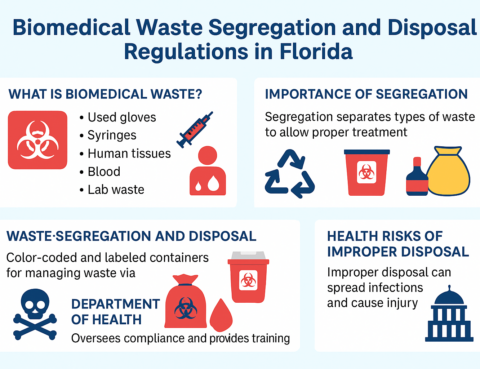
Biomedical Waste Segregation and Disposal Regulations in Florida Biomedical waste is not like regular trash. It includes anything that could be harmful to people or the environment, like used needles, blood-soaked bandages, or lab samples. If not handled properly, this waste can spread infections or hurt someone. That’s why biomedical waste segregation and disposal regulations…
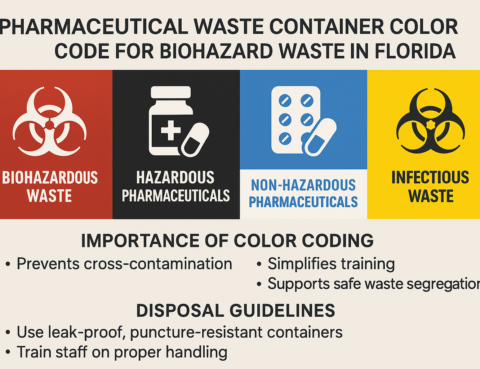
Pharmaceutical Waste Container Color Code for Biohazard Waste in Florida Proper disposal of medical and pharmaceutical waste is essential for safety and environmental protection. In Florida, understanding the pharmaceutical waste container color code for biohazard waste is crucial for healthcare workers, pharmacists, and laboratory staff. This guide explains the color codes used for various types…

Chemotherapy Waste Disposal Guidelines for Healthcare Workers Getting rid of chemotherapy waste the right way is very important in healthcare. These drugs are strong and can be harmful to people and the environment if not handled safely. That’s why healthcare workers must know and follow chemotherapy waste disposal guidelines. This article explains the steps to…
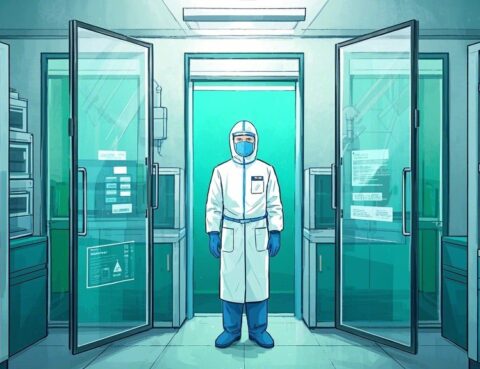
Biohazardous materials are everywhere from hospital laboratories to waste management facilities and handling them improperly can lead to serious health and environmental risks. Whether you’re in the healthcare industry, a research lab, or involved in waste disposal, knowing how to handle biohazardous materials safely is crucial. In this article, we’ll walk you through everything you…
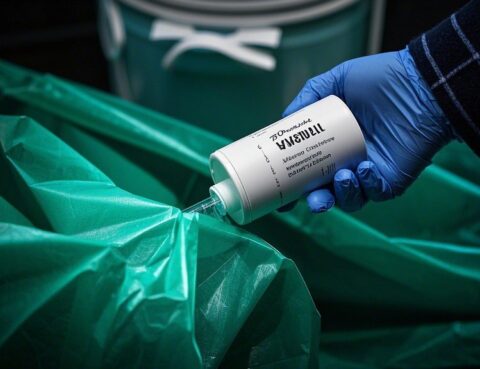
Effective pharmaceutical waste management is crucial for safeguarding public health and preserving Florida’s unique ecosystems. Improper disposal can lead to environmental contamination and pose significant health risks. This comprehensive guide outlines the best practices for managing pharmaceutical waste in Florida, ensuring compliance with federal and state regulations while promoting environmental stewardship. Understanding Pharmaceutical Waste Pharmaceutical…
